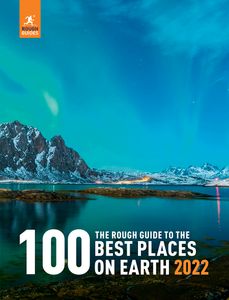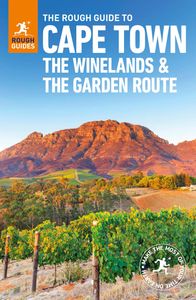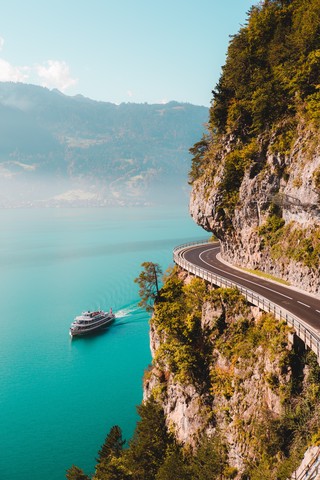The Best Time to Visit South Africa
March to May is usually warm and sunny in South Africa, and while you may have occasional showers in the Northern Cape, these tail off as the rainy season draws to a close.
Best time to visit South Africa
The best time to travel to South Africa depends on which parts of the country you want to visit and your interests. The Cape has warm, dry weather in its summer months (November to February), for instance, but the prime whale-watching season is September and October. If you’re trying to decide when to go on safari in South Africa, the game-viewing conditions are excellent in the cooler winter months (May to September).
When is the best time to visit South Africa?
Unforgettable – and completely customisable – South Africa itineraries
Meet your South Africa local travel expert
Which of our ready-to-go tours in South Africa makes your heart beat faster?
Secret gem in South Africa – Northern Cape Self Drive Embark on an epic self-drive adventure from Cape Town to the Northern Cape. Witness the breathtaking floral displays of Namaqualand, marvel at the diverse wildlife in Karoo National Park, and be captivated by the awe-inspiring cascades of Augrabies Falls. Customize ⤍
The Cape Peninsula and Safaris in Kruger and Pilanesberg Wildlife in South Africa is still truly wild, a fact that you’ll be able to discover in this fascinating two weeks trip. Enjoy whale watching in Cape Town and first safaris in Aquila before heading up north: the famous Kruger and Pilanesberg national parks with all its wildlife await. Customize ⤍
Cape town and Garden Route – a luxury guided tour Cape Town and the Garden Route have it all – a fascinating culture, safaris, chocolate and wine tasting, and much more. Discover the coastal city of Cape Town and the Peninsula before heading out to the Garden Route with Knysna and Mossel Bay, where you’ll experience some game drives. Customize ⤍
Here is our month-by-month guide to visiting South Africa. We look at detailed weather patterns and suggest how these might affect any sightseeing plans, getting around, outdoor activities, and festivals taking place throughout the year. All this will help you to work out when is the best time to visit South Africa.
Weather in South Africa
South Africa is on the whole a dry, sunny country. When it does get cold you feel it, since everything is geared to fine weather. Midwinter in the southern hemisphere is in June and July, when temperatures can drop below zero in some places. Be prepared for average minimums of 4°C in Johannesburg, 7°C in Cape Town and 11°C in Durban. At the other end of the spectrum, midsummer is during December and January, when the country shuts down for its annual holiday and popular coastal and inland resorts quickly fill up.
When considering when to go to South Africa, you need to take into account the country’s distinct climatic zones. In Cape Town and the Garden Route coastal belt, summers tend to be warm, mild and unpredictable. However, rain can fall at any time of the year and winter days can be cold and wet. Subtropical KwaZulu-Natal has warm, sunny winters and tepid seas. In common with the Lesotho highlands, the province’s Drakensberg range has misty days in summer and mountain snow in winter.
Johannesburg and Pretoria lie on the highveld plateau and have a near-perfect climate. You can expect hot summer days frequently broken by dramatic thunder showers, and dry winters with chilly nights. East of Johannesburg, the lowveld, which includes Kruger and much of Swaziland, is subject to similar summer and winter rainfall as the highveld. However, its considerably lower altitude results in far greater extremes of temperature.
What is the rainy season in South Africa?
The rainy season in South Africa varies depending on location. While rain can fall any time of the year across the Cape, showers typically hit Cape Town and the Western Cape from June to August. On the other hand, the northern regions tend to be rainy from November to February and dry from May to October – the best time of year to visit South Africa for safari.
Best month to visit South Africa
The best month to visit South Africa depends on whether you’re heading west or the east. The west is wonderful in the summer months (November to April), while the eastern flank of the country is better suited to the cooler months (May to October).
The best time of year to visit South Africa is also influenced by your interests. The Garden Route is warm and dry from November to February, for instance, but prime whale-watching season is September and October.
November to February is when to go to South Africa for birdwatching in the north of the country, if you don’t mind occasional rain showers. Safari-goers are best travelling to South Africa in the cooler winter months (May to September), when game-viewing conditions are superb.
All things considered, September is the best month to travel to South Africa to experience a combination of all the country has to offer. It is still warm in much of the country, plus you have the highest chance of seeing breaching whales and wildlife with their young.
Visiting South Africa in winter
South Africa’s midsummer is December and January, when resorts in popular tourist destinations are often booked up months in advance. Reserve a room at least a few months before your travel dates, possibly more if you’re heading to Cape Town and the Garden Route.
Weather in South Africa in December — February
The hot, dry days make midsummer the best time to visit South Africa’s coast or national parks, but the downside is inflated prices and jam-packed accommodation. Be sure to book accommodation, tours and excursions early for December or January, especially if you’re staying over Christmas and the New Year.
With the exception of the festive holidays, December and January is a good time to explore Cape Town and the Garden Route, when the weather is warm and dry. The mercury rises in February along the Cape, though an ocean breeze cools the coast. It is also hot in Kruger and KwaZulu Natal, but sunny spells are often broken by tropical storms.
Visiting South Africa in spring
The Easter school holiday is an extremely busy period for tourism in South Africa, making it extremely hard to find any available rooms, and you can forget about bargains.
Weather in South Africa in March — May
March to May is usually warm and sunny in South Africa, and while you may have occasional showers in the Northern Cape, these tail off as the rainy season draws to a close.
March, at the end of the rainy season, can be a rewarding time to go on safari in Kruger as the bushveld will be lush and the rivers full. April is drier the length and breadth of the country, so you could perhaps combine a city break in Cape Town with wildlife adventures in the north. Chilly evenings creep in from May, though days remain warm and dry, and the summer hordes have usually dissipated.
Visiting South Africa in summer
June to August is the best time of year to visit South Africa for wildlife-watching. July is the start of the whale-spotting season, though the weather can be a dampener on your holiday – drizzly and cool.
It is warmer and drier to the north and east, and it is a good time to visit Kruger or Addo Elephant national parks to see herds gather around watering holes.
When August arrives in spring, wildflowers begin to blossom across the Western and Northern Capes, painting the dry, dusty landscape in bold colours.
August is also the beginning of the sports season, with the opportunity to potentially watch South Africa play an international football, cricket or rugby game on their home ground.
Weather in South Africa in June — August
Come June, the weather is becoming cooler in Cape Town and the Western Cape; however, the chill is mainly noticeable at night. When the sun is out, it is pleasant, though you may experience light misty rain.
Visiting South Africa in fall
September and October are the best months to visit South Africa for whale-watching, when the majestic mammals migrate from Antarctica to the warm waters off South Africa; the best spots are Hermanus and Plettenberg Bay.
The wildflowers are in full bloom by September; visit Namaqualand to see its vast arid expanses carpeted with bright flowers.
Cricket fans may like to try to catch South Africa compete in an international test or one-day series between October and March.
Weather in South Africa in September — November
September and October are on the whole sunny, with temperatures rising as the year goes on. November sees the start of the rain in the Kruger and KwaZulu Natal, often followed by spectacular afternoon thunderstorms. This is when to visit South Africa’s arid areas such as the Karoo, before the heat becomes unbearable.
When is the best time of year to go on safari in South Africa?
The best time to visit South Africa to go on safari is the dry season, from May to October. The grass is low, visibility is better and the dry conditions mean you’ll find more wildlife congregating around the watering holes. The temperatures are also much cooler than the sticky, hot summer. That said, the summer months (November to April) are often cheaper, the lush vegetation is spectacular, and baby animals can make an appearance.
Festivals in the South Africa
It can be rewarding to choose when to go to South Africa so that your visit falls on the date of one of its lively festivals. South Africa has no shortage of cool events, from annual music festivals to concert series in city parks. Although Johannesburg and Cape Town tend to monopolise the event programme, the country’s biggest cultural event – the National Arts Festival – takes place in the far-flung towns of Grahamstown.
Here are some festivals and events to consider when deciding when to visit South Africa:
- Cape Town Pride Pageant (Late Feb)
Series of LGBTQ-themed events over a week, kicking off with a pageant at which Mr and Miss Cape Town are crowned, and taking in a bunch of parties and a street parade.
- Dance Umbrella, Johannesburg (Early March)
The country’s leading contemporary dance festival showcases a variety of local dance forms.
A Rio-style street extravaganza centred on Green Point’s Fan Walk, with floats, parades and general euphoria intended to celebrate Cape Town’s cultural diversity and richness.
- Cape Town International Jazz Festival (Late March)
Africa’s largest jazz festival attracts big stars like Courtney Pine, Herbie Hancock, and African greats such as Jimmy Dludlu, Moses Molelekwa, Youssou N’Dour, Miriam Makeba and Hugh Masekela.
- Afrika Splashy Fen Music Festival Underberg, KwaZulu-Natal (Mid-April)
South Africa’s oldest music festival draws thousands of punters to a beautiful farm in the Drakensberg foothills, with a spread of mainstream and alternative rock and pop, trail running and glamping.
- Pink Loerie Mardi Gras and Arts Festival Knysna, Garden Route (Late April)
Gay pride celebration of parties, contests, cabaret, drag shows and performance over a long weekend in South Africa’s oyster capital.
- Franschhoek Literary Festival Franschhoek, Western Cape (Mid-May)
Three-day celebration of books, writers and wine in the Winelands food capital, featuring leading local and international writers, editors and cartoonists.
- National Arts Festival Grahamstown, Eastern Cape (Early July)
Africa’s largest arts jamboree, with its own fringe festival – ten days of jazz, classical music, dance, cabaret and theatre spanning every conceivable type of performance.
- Knysna Oyster Festival Knysna, Western Cape (Early July)
Ten days of carousing and oyster eating on the Garden Route, kicked off by the Knysna Cycle Tour and closed by the Knysna Forest Marathon.
- Jive Cape Town Funny Festival, Cape Town (Early August)
Month-long comedy festival at the Baxter Theatre, beginning in mid-July and attracting both local and international names.
- Arts Alive Johannesburg (September)
September is the best month to visit South Africa for culture, when Joburg’s largest arts event features a month of dance, theatre, poetry and music at venues in Newtown.
- Hermanus Whale Festival Hermanus, Western Cape (Late September)
To coincide with peak whale-watching season, the town of Hermanus stages a weekend festival of arts and the environment.
- Joy of Jazz Johannesburg (Late September)
Joburg’s flagship jazz festival offers three days of varied music, including big names such as Abdullah Ibrahim and Salif Keita.
- Franschhoek Cap Classique and Champagne Festival Franschhoek, Western Cape (Early December)
Popular two-day bacchanalia of bubbly sampling – a vast selection of local and French sparkling wine is on hand – and gourmandizing in the Cape Winelands.
In-depth, easy-to-use travel guides filled with expert advice.



Travel advice for South Africa
- Crime and personal safety tips South Africa
- Eating and drinking in South Africa
- Getting around South Africa: Transportation Tips
- How to get to South Africa
- Travel Tips South Africa for planning and on the go
- Best time to visit South Africa
The Best Time to Visit South Africa
Jessica Macdonald lives in South Africa’s Eastern Cape province and has been TripSavvy’s Africa Expert since 2016. She also covers travel products and has written about everything from camping knives to climbing chalk.
Jillian Dara is a freelance journalist and fact-checker. Her work has appeared in Travel + Leisure, USA Today, Michelin Guides, Hemispheres, DuJour, and Forbes.
:max_bytes(150000):strip_icc()/GettyImages-143175937-59fc658ae258f80037317a2e.jpg)
South Africa is the ultimate year-round destination. No matter when you decide to travel, there’s always something amazing going on—from whale migrations and prime game-viewing in winter; to blissful sunshine and Christmas festivities in summer. For generally good weather for whatever you want to do, the best time to visit South Africa is May through October, during the southern hemisphere’s winter. Days are still clear and warm, with colder nights.
Weather in South Africa
South Africa is a vast country, with a mix of desert, tropical coastlines, temperate woodlands, and snow-capped mountains. Because of this, climates can vary.
Unlike many other African countries, South Africa does have four distinct seasons. May through September is typically the drier season, covering winter and a shorter spring season, and making it ideal for game drives and other outdoor activities. October through April is the wet season, encompassing fall and summer. This is an excellent season for bird-watching, and even then, rains are often quick showers that are unlikely to affect your trip. December through February are very hot (the equivalent of summer for the Northern Hemisphere) and can be crowded since schools are on holiday.
In general, high temperatures range from around 80 degrees Fahrenheit in the summer to 60 degrees Fahrenheit in the winter.
:max_bytes(150000):strip_icc()/white-rhinos-watched-by-tourist-in-the-klaserie-reserve--greater-kruger-national-park-960115378-5c26bd2e46e0fb0001b5ae99.jpg)
The Best Time to Go on Safari
The best time to go on safari is during the dry season. For most of the country, this means traveling during the southern hemisphere winter (May to October), when the weather is typified by clear, warm days and chilly nights. At this time of year, there is less foliage on the trees, making it easier to spot animals in the bush. The lack of available water draws wildlife to dams and waterholes, which is where you’ll get some of your best sightings. Dry weather also means better road conditions for self-drive safaris at parks like Addo and Mkhuze, while the chill keeps mosquitoes at bay (a major plus for safaris in malarial areas of South Africa).
Game reserves near Cape Town are the exception to this rule. In the southernmost part of the country, summers are the driest time of year. Therefore, it’s best to travel between November and March for the best safari sightings. Be aware, though, that this time of year coincides with the busiest period for tourism in South Africa and you’ll need to book accommodations and game drives in advance. For keen birders, the rules are reversed. The rainy season brings an influx of insects and fills up the rivers and lakes, attracting a host of migratory birds from Europe and Asia.
:max_bytes(150000):strip_icc()/cape-town-aerial-shot-136693153-5c26c13946e0fb0001c953c8.jpg)
The Best Time to Visit Cape Town
Cape Town is undoubtedly a year-round destination, with each season bringing its fair share of unique benefits. But, if you want to make the most of the region’s incredible scenery, the most reliable weather occurs during the hot, dry summer months (November to February). Take the opportunity afforded by endless sunny days to browse the city’s outdoor markets, hike up Table Mountain, or catch a tan on one of the spectacular beaches of the Cape Peninsula.
:max_bytes(150000):strip_icc()/view-of-the-drakensberg-mountains-852556310-5c26bde546e0fb0001b5ceef.jpg)
The Best Time to Visit the Drakensberg
For keen hikers, the Drakensberg Mountains are one of South Africa’s top attractions. Weather-wise, the optimum time for hiking is during the fall (April to May), when you can expect warm, dry days and cool nights. At this time of year, the scenery is also mainly green and beautiful in the wake of the summer rains. Temperatures drop dramatically during the winter, with many of the higher trails coated in ice and snow. In summer, heavy rains are frequent in the north of the country (although the range’s many waterfalls are at their most spectacular).
:max_bytes(150000):strip_icc()/skyline--coast--durban--kwazulu-natal--south-africa-1065965788-5c26c1bfc9e77c00012638a9.jpg)
The Best Time to Head to the Coast
South Africa’s twin coastlines extend for more than 1,700 miles (2,500 kilometers) and offer an unlimited array of activities. The best time to visit depends mostly on what you want to do. If sunbathing is your top priority, then summer (November to January) is undoubtedly the hottest time of year. Be warned though: If you’re headed north to KwaZulu-Natal or Zululand, summer also means frequent thunderstorms and high humidity.
Whale-watching is also best in winter and spring. From June to October, humpbacks and southern right whales can be seen passing close to shore on their annual migration to the breeding grounds off Mozambique. If you’re coming to South Africa to scuba dive, there is no “off” season, just different seasons. Shark-diving mecca Aliwal Shoal offers baited shark dives all year round, but if you want to swim alongside a tiger shark, you’ll need to time your trip to coincide with the influx of warm water from December to April. However, June to August is Sardine Run season, offering the opportunity to witness one of the underwater world’s most significant natural events. Rock and surf fishermen can also experience world-class fishing on the Transkei coast during the annual Sardine Run.
:max_bytes(150000):strip_icc()/DSC_2695-0dfb11bdd0524de5aaaf6c13af2b29fc.jpg)
The Best Time For Wildflower Blooms
Every year, the arrival of spring sparks the start of an incredible natural phenomenon in the Northern Cape. Almost overnight, the province’s arid desert landscapes are transformed into a rich tapestry of color by the simultaneous blooming of thousands of wildflowers. Creating a sea of orange, pink, purple, yellow, and white, the super bloom includes over 3,500 different species, of which almost a third are endemic. Timings are difficult to get right because the rains dictate the bloom. However, it usually starts in the far north in late July or early August, moving slowly south until it fades in September.
Spring
Spring is when the peak wildflower bloom and whale migrations take place. It’s also the ideal time to visit Durban, in the north, where the climate can be muggy at other times of the years.
Events to check out:
- Hopefield Fynbos Show takes place every August and September, celebrating this dramatic flower with food stalls, tractor races, and more.
- During the first half of September, more than 10,000 Zulu maidens in traditional dress head toward Zulu king’s KwaNyokeni Palace in KwaZulu-Natal Province as part of a four-day procession.
- Johannesburg hosts the 10-day Arts Alive Festival every September. Performances include stage dance, concerts, and more, performed by both local and international talents.
Summer
If you’re traveling on a budget, avoid the rush of high summer, when accommodation and activities are at their most expensive across the much of the country.
Events to check out:
- The Swartland Heritage Festival takes place in November, celebrating more than 20 different wine producers and food from the region.
- The new year kicks off with a bang thanks to the Cape Town Minstrel Carnival, or the “Kaapse Klopse” in Afrikaans. Held on January 1 and continuing through the first week of the year, costumed minstrels parade through the streets of Cape Town, playing traditional jazz and music.
Fall
The Winelands of Franschhoek, Paarl, and Stellenbosch are extraordinarily beautiful in fall when the weather is cooler, and the trees start to change color, and the season is also optimal for hiking throughout the country.
Events to check out:
- The Cape Town International Jazz Festival, southern Africa’s biggest jazz festival, is held each March or April.
- AfrikaBurn is a unique event not unlike Burning Man in the U.S. Held in late April, the incredible week-long event takes place in Ceres, near the Tankwa Karoo National Park.
Winter
If you’re interested in discovering South Africa’s best surf spots, winter brings big swells and consequently, the best waves. This is also the ideal season to head out on safari.
Events to check out:
- August 9 is a country-wide celebration for Women’s Day.
- The National Arts Festival takes place in July in Grahamstown. The 11-day-long festival includes theatrical dramas, opera, street entertainers, and visual art.
- If you love oysters, don’t miss the Knysna Oyster Festival, held every July in Knysna. Events include shucking contests, eating challenges, and even a marathon.
The best time to visit South Africa is May through October, during the southern hemisphere’s winter. At this time of year, the days are clear and warm and the nights are cool.
When is the best time to go on a South African safari?
During the dry season (May through October), South Africa’s wild game is most active, making this an exceptional time for a safari. In Kruger, Madikwe, Pilanesberg, and KwaZulu-Nata, animals hang out around water sources and are easier to spot due to the thin vegetation.
What vaccinations do you need for travel to South Africa?
The World Health Organization, as well as the National Travel Health Network and Centre, recommend getting the following vaccinations before traveling to South Africa: hepatitis A, hepatitis B, typhoid, cholera, yellow fever, rabies, and tetanus.
TripSavvy uses only high-quality, trusted sources, including peer-reviewed studies, to support the facts within our articles. Read our editorial policy to learn more about how we keep our content accurate, reliable and trustworthy.
- Weather Spark. “Average Weather in Cape Town, South Africa, Year Round.” Retrieved February 24, 2021.
- Ikeda, Takayoshi et al. Scientific reports vol. 7,1 2458. “Seasonally lagged effects of climatic factors on malaria incidence in South Africa.” 29 May. 2017.
- National Geographic. “South African Coast Article, Marine Biodiversity Information.” Retrieved February 24, 2021.

